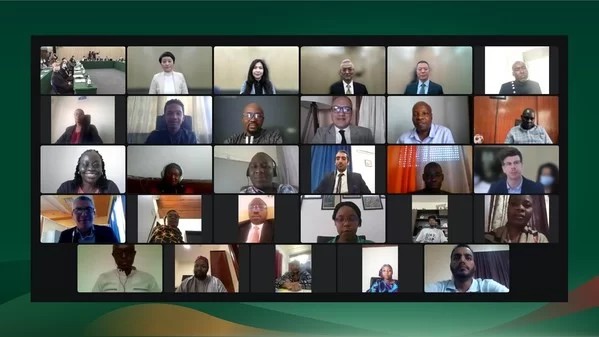BEIJING, Nov. 19, 2022 — Chinese President Xi Jinping delivered a speech titled "Shouldering Responsibility and Working Together in Solidarity to Build an Asia-Pacific Community with a Shared Future"…
CCTV+: China-Africa Media Cooperation under the concept of “Sincerity, Real Results, Amity and Good Faith”
BEIJING, Nov. 16, 2022 — The 6th Africa Link Union (ALU) Annual Meeting was held in Beijing on Monday, gathering 26 media representatives from 19 countries and regions to help…
CGTN: China and UAE collaboration for a shared future
BEIJING, Nov. 15, 2022 — China and the United Arab Emirates’ diplomatic ties are nearing four decades, but their economic and cultural ties go back far deeper, in the…
Yangtze finless porpoise: Protecting China’s ‘Smiling Angel’
BEIJING, Nov. 11, 2022 — A news report from China.org.cn on China’s efforts to protect Yangtze finless porpoise:   https://www.youtube.com/watch?v=OeeZpJbI6zk In a recent poll, netizens voted to…
CGTN: How to protect wetland and build a shared future for all life on Earth?
BEIJING, Nov. 6, 2022 — More than a billion people across the world depend on wetlands for their livelihoods – that’s about one in eight people on Earth. However,…
CGTN: China, Tanzania upgrade ties to comprehensive strategic cooperative partnership
BEIJING, Nov. 5, 2022 — China and Tanzania have enjoyed a long-lasting friendship and comprehensive cooperation, and the development of the relations is being promoted at a higher level…
CGTN: China, Germany highlight cooperation ‘in times of change and instability’
BEIJING, Nov. 5, 2022 — German Chancellor Olaf Scholz, the first EU leader to come to Beijing after the successful convening of the 20th National Congress of the Communist Party…
CGTN: Yan’an Spirit to inspire rural revitalization drive
BEIJING, Oct. 31, 2022 — Big red apples hanging on trees is a common sight in Nangou Village in the harvest season. It’s one of the villages that’s lifted itself…
Global Times survey: Chinese youngsters more confident, objective facing the West
By GT staff reporters BEIJING, Oct. 24, 2022 — More Chinese youngster agreed that China can look at the West from an equal position. But there are also a notable…
CGTN: How does China set tone for future of “One Country, Two Systems”?
BEIJING, Oct. 22, 2022 — The report delivered by Xi Jinping on Sunday at the opening of the 20th National Congress of the Communist Party of China (CPC) in…












